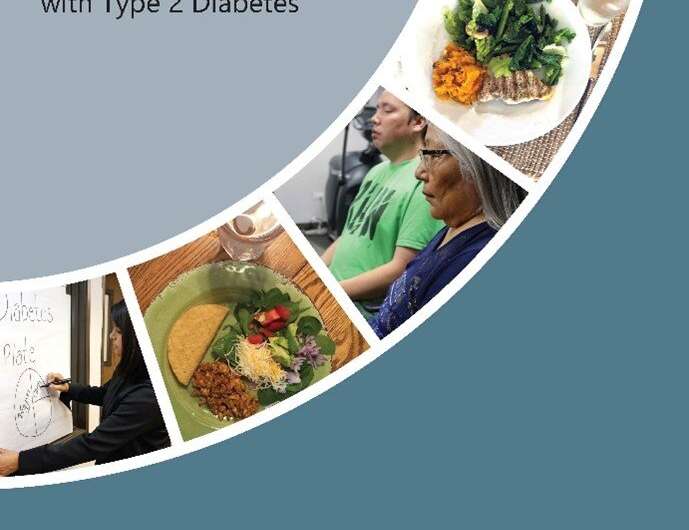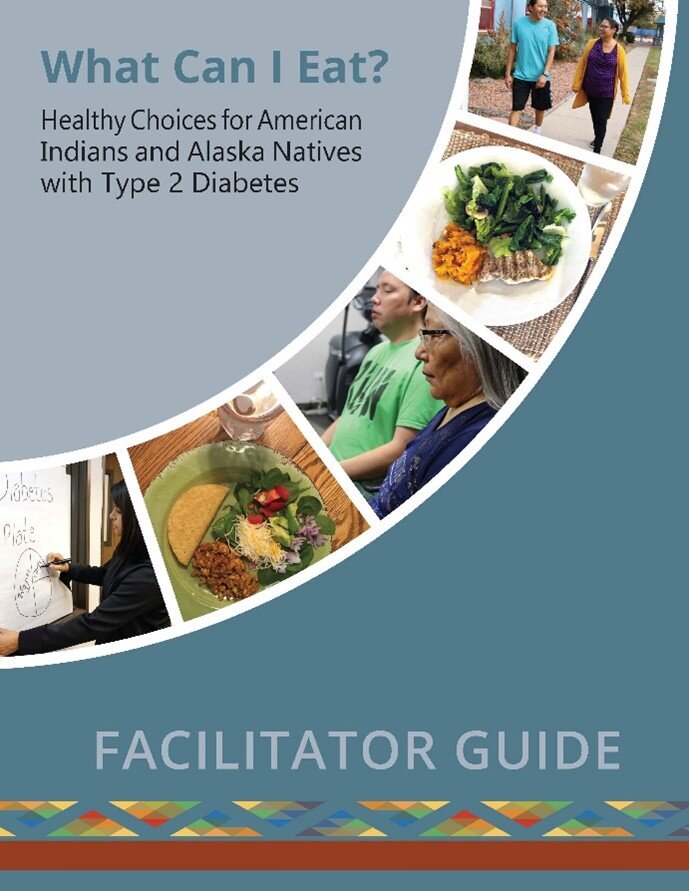
American Indians and Alaska Natives (AI/AN) have traditional food and nutrition practices that support holistic health. However, these traditional practices have been interrupted by Western food systems, which has led to disproportionate rates of type 2 diabetes (T2D) among AI/AN communities.
Nutrition education interventions are particularly effective when developed to meet the needs of specific communities and when they emphasize strengths-based, culturally relevant healthy dietary practices. A research brief in the Journal of Nutrition Education and Behavior shares the results of a successful culturally adapted, online diabetes nutrition education program for AI/ANs. The implications of the findings have guided program changes for improved diabetes nutrition education.
“Nutrition education is one of the cornerstones of a comprehensive diabetes education and support program,” says lead researcher Sarah A. Stotz, Ph.D., MS, RDN, CDCES, a Research Assistant Professor at the Centers for American Indian and Alaska Native Health, Colorado School of Public Health, University of Colorado Anschutz Medical Campus, Aurora, CO, U.S..
“Although the literature supports the value of such interventions, to our knowledge no up-to-date, large-scale, nutrition-specific diabetes education programs that prioritize American Indians and Alaska Natives with existing T2D have been developed.”
The American Diabetes Association’s (ADA) What Can I Eat? Healthy Choices for American Indians and Alaska Natives with Type 2 Diabetes (WCIE) curriculum is a five-lesson diabetes nutrition education program for adults with T2D and their families.
Each class includes a didactic lesson, interactive learning activities, physical activity, mindful eating activity, peer-to-peer learning opportunities, and goal setting. Example nutrition topics covered in the classes include the diabetes plate method, food label reading, healthful traditional AI/AN foods, and healthy eating strategies for families and communities.
In 2018, the Minnesota-based Shakopee Mdewakanton Sioux Community partnered with the ADA to fund the development of a culturally adapted version of WCIE for AI/AN adults with T2D. Key ways in which WCIE was adapted for AI/AN adults include the incorporation of a focus on healthful traditional Native foods (e.g., beans, corn, squash, walnuts, fish, wild game) and designing in-class activities focused on mindful eating that align with AI/AN culture (e.g., food gathering visualization mindful activity).
In response to the coronavirus disease 2019 pandemic, which disrupted pilot testing of the adapted curriculum, researchers retooled the curriculum for synchronous online delivery. Evaluation took place at five collaborating reservation-based tribal and intertribal urban Indian clinical sites. After each of the five 90-minute classes, all participants and class facilitators completed a feedback survey. A sample of WCIE participants and all WCIE educators and site coordinators also participated in remote focus groups.
The WCIE curriculum was well received by program participants, class facilitators, and site coordinators. Most participants reported that the classes were enjoyable, a good learning experience, and culturally respectful. Key themes from the evaluation focused on the strengths of the program (e.g.. benefits of synchronous online learning), recommendations for curriculum improvements (e.g., more time for peer-to-peer interaction), and preferences for who facilitated the classes (e.g., educator should be AI/AN or very familiar with the community if not).
“We plan to refine the curriculum to include shorter, more frequent online classes; hybrid class options; and a co-teaching model that includes an AI/AN peer educator working with an RDN to teach the classes,” states Dr. Stotz.
More information:
Sarah A. Stotz et al, Evaluation of a Synchronous, Online Diabetes Nutrition Education Program for American Indians and Alaska Natives With Type 2 Diabetes: Facilitators and Participants’ Experiences, Journal of Nutrition Education and Behavior (2023). DOI: 10.1016/j.jneb.2022.10.013
Journal information:
Journal of Nutrition Education and Behavior
Source: Read Full Article
